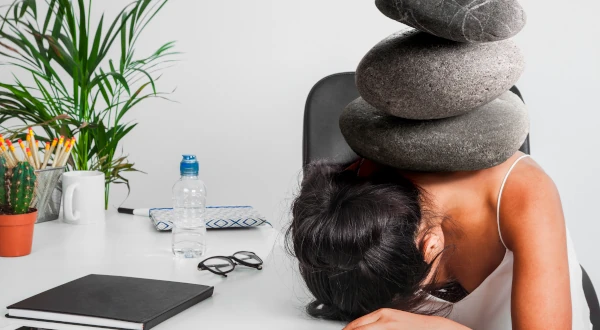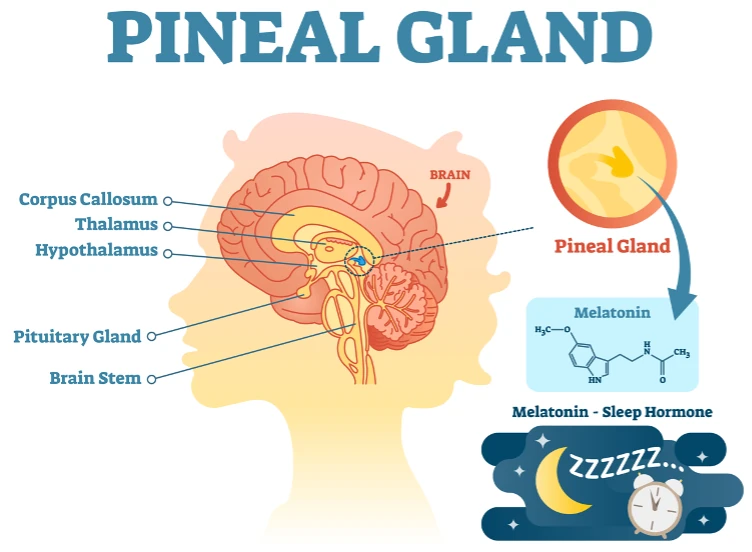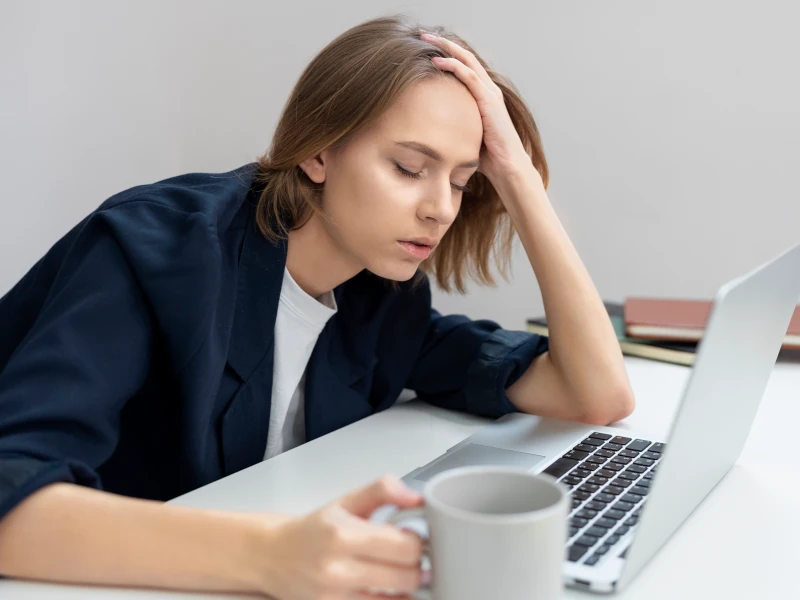Sleep is important for your health, but anxiety can make it hard to rest well. The relationship between anxiety and sleep is complex and bidirectional. While anxiety can interfere with sleep, poor sleep can also exacerbate anxiety symptoms. For many, bedtime becomes a battleground of racing thoughts, elevated stress levels, and restlessness that lead to difficulty falling asleep or staying asleep through the night.
Anxiety is a widespread condition affecting millions worldwide. It affects you not just when you’re awake, but also disrupts sleep, leading to a cycle of tiredness, frustration, and even more anxiety. While overcoming anxiety-related sleep disturbances can be challenging, there are clear, actionable solutions that can yield meaningful improvements. In this article, we will explore practical and evidence-based strategies to manage anxiety and support better sleep.
Understanding anxiety and sleep
Anxiety is a psychological condition marked by excessive worry, unease, and fear. It triggers a physiological stress response in the body, activating the sympathetic nervous system and releasing stress hormones such as cortisol and adrenaline. These hormones prepare the body for “fight or flight” by increasing heart rate, elevating alertness, and redirecting energy away from restorative processes like digestion and sleep. While these responses are adaptive in acute danger, they are counterproductive when trying to fall asleep in a safe environment.
This heightened state of arousal significantly impairs the individual’s ability to relax and transition into sleep. Elevated cortisol levels in the evening delays the production of melatonin, the hormone responsible for regulating sleep-wake cycles. As a result, the individual may struggle to fall asleep, experience fragmented sleep, or awaken feeling unrefreshed. Furthermore, disturbing thoughts, ruminations, and persistent worries often accompany anxiety, leading to cognitive hyperstimulation. This mental unrest prevents the brain from transitioning into the deeper stages of sleep, resulting in reduced sleep quality even when sufficient hours are spent in bed.
The combination of physiological and psychological factors creates a disruptive feedback loop, anxiety causes sleep problems, and inadequate sleep intensifies anxiety symptoms the following day. Understanding this cycle is a crucial first step in breaking it and implementing strategies that promote both calmness and restfulness.
The impact of technology on sleep and anxiety
Modern technology, while indispensable in daily life, plays a significant role in exacerbating anxiety and disturbing sleep patterns. Devices such as smartphones, tablets, computers, and televisions emit blue light, a high-energy visible light spectrum that interferes with the body’s natural circadian rhythms. Exposure to blue light, especially in the evening, suppresses the secretion of melatonin, making it more difficult to initiate and maintain sleep.
Beyond the physiological effects of light exposure, the content consumed on these devices can elevate stress levels. Social media platforms often present a continuous stream of emotionally charged or anxiety-inducing content. News updates, personal comparisons, and constant connectivity can lead to cognitive overstimulation. Additionally, work-related communications outside of business hours can blur the boundary between professional and personal time, contributing to chronic stress and restless sleep at night.
Tips for beating anxiety to improve sleep
The following evidence-based strategies can be integrated into a daily routine to improve anxiety and sleep quality.
Establish a relaxing pre-sleep routine
Creating a consistent pre-sleep routine signals to the body that it is time to relax and prepare for rest. Activities that promote relaxation help to shift the nervous system from a sympathetic (stress) state to a parasympathetic (rest-and-digest) mode. Simple practices such as reading a book, taking a warm bath, engaging in gentle yoga, or practicing meditative breathing can be highly effective. Deep breathing exercises reduce heart rate and stimulate the vagus nerve, helping to lower cortisol levels and promote calmness.
Effective relaxation techniques that help to reduce anxiety before sleep include deep breathing exercises, progressive muscle relaxation, guided meditation, and gentle yoga. These practices activate the parasympathetic nervous system, lower heart rate, and cortisol levels, and promote a calm mental state, making it easier to transition into a restful sleep.
Cognitive behavioural techniques
Cognitive Behavioural Therapy for Insomnia (CBT-I) is a widely recognised and effective treatment for anxiety-induced sleep disturbances. This therapeutic approach targets unhelpful thoughts and beliefs that interfere with sleep. For instance, individuals who often think, “I’ll never be able to fall asleep” or “If I don’t sleep, tomorrow will be a disaster” may benefit from cognitive restructuring. This involves identifying and challenging exaggerated thoughts and replacing them with balanced, reality-based perspectives. Practicing thought challenges before bed can involve writing down worrisome thoughts and countering them with rational responses. This helps to reduce the emotional impact of anxiety-provoking beliefs.
Mindfulness and meditation
Mindfulness practices, such as guided meditation, progressive muscle relaxation, and body scans, can significantly reduce anxiety, and stress and improve sleep quality. These techniques help to disengage from ruminative or anticipatory thinking that often accompanies anxiety. Regular mindfulness practice has been shown to decrease activity in the default mode network of the brain, which is associated with mind-wandering and self-referential thoughts.
Apps and online platforms offering guided meditations specifically designed for sleep can be useful tools. Practicing mindfulness for just 10–15 minutes before bed can lower stress, reduce physiological arousal, and make it easier to transition into sleep.
Limit stimulants
Stimulant substances, including caffeine and nicotine, as well as alcohol, can interfere with the body’s natural ability to fall and stay asleep. Caffeine, found in coffee, tea, chocolate, and many sodas, can remain in the system for several hours and delay sleep onset, particularly when consumed in the afternoon or evening. Nicotine acts as a stimulant and may lead to frequent awakenings during the night.
Although alcohol is often perceived as a sleep aid due to its sedative effects, it disrupts the normal sleep cycle and reduces REM sleep, which is essential for emotional processing and memory consolidation. Eliminating or significantly reducing stimulant intake, especially in the hours leading up to bedtime, can help to regulate the sleep-wake cycle and improve anxiety symptoms.
Consistent sleep hygiene
Sleep hygiene refers to the behavioural and environmental practices that support consistent, quality sleep. Maintaining a regular sleep schedule by going to bed and waking up at the same time each day helps regulate the body’s internal clock. This consistency strengthens circadian rhythms and makes it easier to fall asleep and wake up naturally.
Optimising the sleep environment is equally important. The bedroom should be dark, cool, and quiet. Blackout curtains, white noise machines, or earplugs can help to reduce disruptions. Limiting the presence of screens and other distractions reinforces the bedroom as a space dedicated to rest. Additionally, reserving the bed exclusively for sleep and intimacy (avoiding work, television, or prolonged phone use in bed) strengthens the psychological association between bed and sleep.
Exercise during the day
Engaging in regular physical activity is a powerful tool for managing anxiety and improving sleep. Exercise reduces stress hormone levels, boosts endorphin production, and enhances mood stability. It also helps to release excess energy and promotes deeper, more restorative sleep. The type and timing of exercise matters. Aerobic exercises such as walking, cycling, and swimming are particularly beneficial. However, high-intensity workouts should be scheduled earlier in the day, as vigorous activity close to bedtime can increase arousal and make it harder to fall asleep.
Journaling and thought dumping
One practical technique for managing anxiety before bed is journaling. Writing down thoughts, worries, or to-do lists in the evening allows individuals to externalise their concerns, reducing mental distress. This process, often referred to as “thought dumping,” creates psychological distance from anxiety-provoking thoughts and can prevent rumination. Journaling can be structured or freeform. For some, writing about positive events or expressing gratitude may enhance emotional well-being and promote relaxation. For others, simply listing out tasks for the next day helps them feel more organised and less overwhelmed, making it easier to mentally disengage from ongoing stressors.
Creating a restful environment
Designating specific tech-free zones in the home, such as the bedroom, can reinforce the association between this environment and restfulness. Additionally, using apps that track or limit screen time can raise awareness of digital habits and encourage more mindful usage. Creating a bedtime environment that is free from alerts, vibrations, and notifications ensures the brain can relax without constant stimulation.
When to seek professional help
While self-help strategies can be highly effective for many individuals, persistent or severe anxiety that continues to disrupt sleep may require professional intervention. If sleep disturbances occur more than three nights per week for several months, or if daytime functioning is impaired, it is advisable to consult a healthcare provider or mental health professional.
Seeking help is not a sign of weakness but a proactive step toward improving quality of life. Psychologists, psychiatrists, and sleep specialists can offer tailored treatment plans, including CBT-I, medication if necessary, and other therapeutic interventions that address both anxiety and insomnia. Treating the underlying anxiety often results in significant improvements in sleep, and vice versa.
Combatting anxiety for better sleep
Anxiety and sleep are inextricably linked. Understanding how anxiety affects both the body and mind can help to understand the root causes of sleep disturbances. By implementing consistent strategies such as establishing relaxing bedtime routines, limiting stimulants and screen time, practicing mindfulness, and maintaining good sleep hygiene individuals can break the cycle of anxiety and poor sleep. Although the road to better sleep may require time and persistence, the combination of evidence-based practices and professional support offers a hopeful path forward. With commitment and the right tools, restful sleep is achievable.
If anxiety is interfering with your ability to get a good night’s sleep, now is the time to take action. Dr Dipesh Mistry offers personalised treatment plans that address both anxiety and sleep disturbances, helping you regain control over your nights and improve your overall quality of life. Take the first step toward peaceful sleep and a healthier mind. Schedule a consultation by filling out our online form, emailing us at [email protected], or calling us directly on 0207 935 0207.










